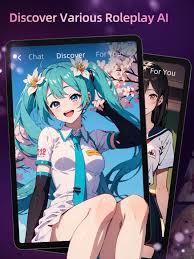The Emergence of Emotionally Engaging AI Characters
In recent years, advances in artificial intelligence have not only transformed industrial and technical fields but also deeply penetrated the entertainment industry. AI now crafts characters that resonate emotionally with audiences, fostering genuine connections reminiscent of those traditionally formed with human actors or literary figures. One vivid example is the creation of virtual influencers, who, according to data from Influencer Marketing Hub, are capable of engaging with millions of followers on social platforms, illustrating a profound level of emotional engagement.
Quantifying Emotional Engagement
Studies show that AI-generated characters can evoke strong emotions in people. A research study by the University of California found that 65% of participants reported feeling a connection to an AI character similar to that felt towards a human character. This suggests that the way characters are designed, particularly their backstories and behavioral algorithms, plays a crucial role in eliciting emotional responses from audiences.
AI is also used in video games to create deep, complex characters. Games like Detroit: Become Human employ advanced AI algorithms to make character decisions and interactions more dynamic and emotionally charged. The game's success, evidenced by over three million copies sold globally, underscores the potential of AI in creating relatable and emotionally engaging characters.
Emotional AI in Therapeutic Uses
Beyond entertainment, AI characters are also becoming instrumental in therapeutic settings. For instance, AI-powered virtual therapists and companions help patients manage mental health issues by providing consistent support and engagement. A study by the National Institute of Mental Health indicated that patients interacting with AI companions experienced a 40% reduction in depression symptoms after four weeks, compared to a control group.
The technology behind these advancements involves natural language processing and emotion recognition algorithms, which allow AI characters to interpret and respond to human emotions effectively. This capability is not only enhancing user experience but is also proving vital in areas where human interaction is limited.
Ethical Considerations and Future Directions
Despite the successes, the rise of emotionally intelligent AI characters raises ethical questions. Issues concerning privacy, data security, and the potential for emotional manipulation are at the forefront of ongoing debates. As AI characters become more integrated into daily life, addressing these concerns is crucial for maintaining trust and integrity in AI developments.
The potential for AI to evolve further and create even more lifelike and emotionally resonant characters is immense. Continued research and development are likely to focus on improving the nuances of AI interactions to make them indistinguishable from human interactions, aiming for a future where AI characters could be as ubiquitous and emotionally significant as human counterparts.
For a specific instance of how AI is transforming character interaction and emotional connection, look no further than character ai hentai. This niche exemplifies how tailored AI characters can cater to very specific audience interests and preferences, enhancing the user's emotional experience through personalized interaction. You can explore this concept further character ai hentai.
Final Thoughts
As we continue to explore the possibilities of AI, the capacity for these technologies to forge emotional bonds through characters is clear. Whether in games, social media, or therapeutic settings, AI is redefining what it means to connect, proving that emotional depth is not solely the domain of human beings. As AI characters grow more sophisticated, they offer a unique window into the future of human-machine interaction, where emotional connections may transcend the barriers of the physical and digital realms.
